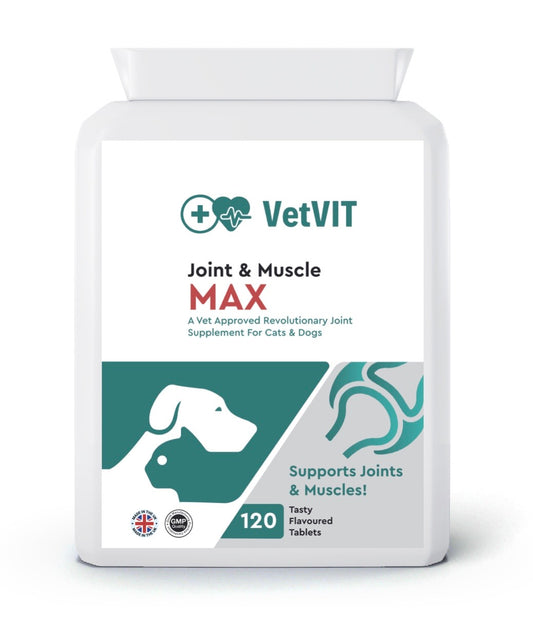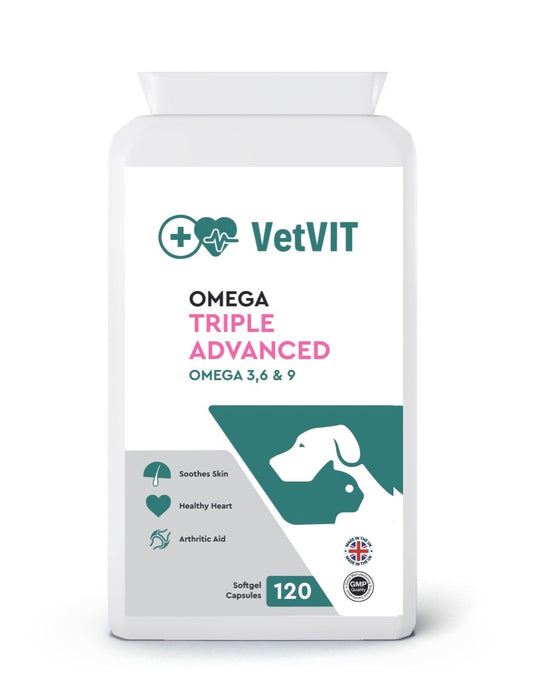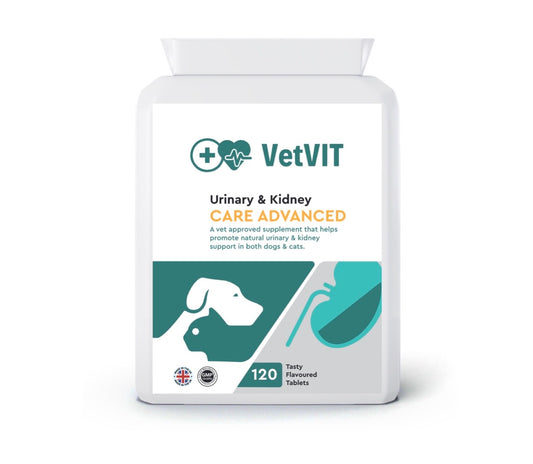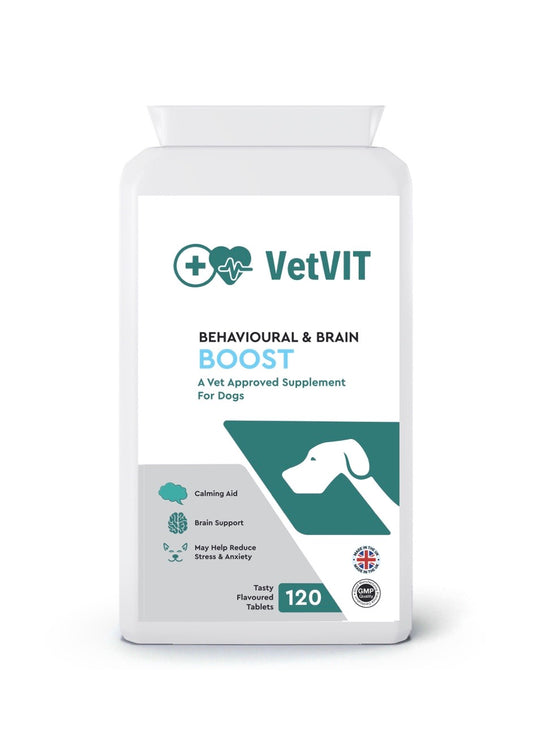Puppy diarrhoea is a common issue that many new pet owners face. It can be alarming to see your puppy suffering from loose stools, but rest assured, it's usually nothing serious. Most cases of puppy diarrhoea can be easily treated with simple home remedies and dietary changes. In this ultimate guide, we'll cover everything you need to know about puppy diarrhoea - from the different types to the causes, treatments and even prevention tips.
What is Puppy Diarrhoea?
Puppy diarrhoea is a condition where dogs pass loose, watery stools frequently. It can be caused by various factors such as diet changes, bacterial infections or even parasites.
It's important to note that occasional bouts of mild diarrhea are normal for puppies who are still getting used to their new environment and diet. However, persistent or severe episodes should not be ignored.
As pet owners, it's essential to keep a close eye on our puppy's bowel movements so we can quickly spot any signs of illness and get them the help they need.
The Different Types of Puppy Diarrhoea!
Puppies are prone to diarrhoea, and there can be various types of it. The most common type is acute diarrhoea, which lasts for a short time and can be caused by an abrupt change in diet or stress. However, chronic puppy diarrhoea is more severe and lasts longer; it may indicate an underlying health problem that needs medical attention.
Another type of puppy diarrhoea is haemorrhagic enteritis (HE), which causes bloody stools due to inflammation in the intestines. This critical condition requires immediate veterinary treatment as it could lead to dehydration, anaemia or even death if left untreated.
Parvovirus-induced diarrhea is another severe form of puppy diarrhoea that usually affects unvaccinated puppies between 6 weeks and 6 months old. It's highly contagious and spreads easily through contact with infected faeces.
Other types include Giardia-associated diarrhea transmitted through contaminated water sources or via other animals' feces, dietary intolerance-related diarrhea caused by allergic reactions to certain foods or ingredients, inflammatory bowel disease (IBD) induced diarrhea from long-term exposure to allergens like food proteins leading to inflammation in the gut lining.
Understanding the different types of puppy diarrhoea will help you identify any abnormality early on so you can seek appropriate medical care before things get worse.
Causes of Puppy Diarrhoea?
Puppy diarrhoea can be caused by a variety of reasons, some are not serious while others can be potentially life-threatening. One common cause is a sudden change in diet or feeding routine. Puppies have sensitive digestive systems and their bodies need time to adjust to new types of food.
Another possible cause is bacterial infections such as salmonella or E.coli. These bacteria can be picked up from contaminated food, water or feces.
Stressful situations like moving homes, travelling or being separated from the owner may also trigger puppy diarrhoea since stress affects the gut function too.
In addition, viral infections such as parvovirus and distemper virus are highly contagious and commonly found in unvaccinated puppies that haven't yet developed immunity against them.
It's important for pet owners to know what causes puppy diarrhoea so they can take appropriate measures to prevent it from happening again in the future.
How to Treat Puppy Diarrhoea?
Treating puppy diarrhoea can be a bit of a challenge for new dog owners. However, with the right approach, it is possible to restore your pup's health quickly and efficiently. Here are some tips on how to treat puppy diarrhoea:
Firstly, start feeding them small portions of bland food which is mentioned below. These foods are easy to digest and can help soothe an upset stomach.
Secondly, make sure they have access to plenty of fresh water at all times. Dehydration is a common complication of diarrhoea in dogs.
Thirdly, consider giving them probiotics specifically formulated for dogs. These can help replenish good bacteria in their gut and improve digestion.
Avoid giving them any human medications as some medications can be toxic for dogs.
Lastly, when the diarrhoea has resolved, really slowly introduce their regular diet over a period of 4-5 days, mixing it in gradually with the chicken and rice. Otherwise you may cause a relapse of the puppy diarrhoea.
By following these steps along with regular monitoring for improvements or worsening symptoms should get your pup back on track in no time!
What to Feed During Puppy Diarrhoea?
When your puppy has diarrhoea, it's important to take their diet into consideration. Feeding your pup the right foods can help alleviate symptoms and aid in recovery.
Firstly, make sure they stay hydrated by providing plenty of water. You can also offer them a bland diet consisting of boiled chicken or white fish with rice. This will give their digestive system a break from harder-to-digest foods and may help firm up stools.
Feed a bland diet such as boiled chicken or white fish, with white rice or pasta. Avoid wholegrain/brown carbohydrates. Feed small regular feeds so not to be putting too much food into the body at the one time.
Avoid feeding your puppy any fatty, spicy or processed foods as these can aggravate their stomach further. Dairy products should also be avoided as many dogs are lactose intolerant which could worsen diarrhoea symptoms.
It's important to monitor your pup's appetite during this time - if they're not eating or drinking enough, you may need to consult with a vet for additional support.
Once the diarrhoea has cleared up, slowly reintroduce normal dog food back into their diet over several days. By taking care when choosing what to feed your puppy during an episode of diarrhoea, you'll be helping them on the road to recovery!
Non-Prescription Treatments For Puppy Diarrhoea!
When you notice that your puppy is suffering from diarrhoea, the first thing you should do is ensure they remain hydrated. Giving them plenty of water and an electrolyte solution can help replace lost fluids and maintain their energy levels.
Another non-prescription treatment you can try is adding probiotics to your pup's diet. Probiotics are beneficial bacteria that help restore healthy gut flora and promote digestion.
Peppermint tea has also been known to ease gastrointestinal discomfort in dogs. Just make sure the tea is caffeine-free before offering it to your pet.
It's important not to give any medication without consulting with your vet first, even over-the-counter remedies such as anti-diarrheal medications like loperamide or Pepto-Bismol can have serious side effects on puppies if given too much or too frequently.
It's always best to seek veterinary care if symptoms persist without any improvement for more than 24 hours or become severe.
When to Call your Vet?
It can be scary when your puppy is experiencing diarrhoea, but it's important to know when it's time to call the vet. Here are some situations where you should seek professional help:
If your puppy is lethargic or depressed and refusing food or water, this could indicate a more serious problem than just an upset stomach. It's best to have them checked out by a veterinarian.
If your puppy has bloody stool, this could indicate parasites or other infections that require medical attention. It's important not to ignore any signs of blood in their stool.
If your puppy has been vomiting frequently along with diarrhoea, they may become dehydrated quickly. Your vet will be able to administer fluids and recommend treatment options.
If your puppy has diarrhoea for longer than 24 hours without any signs of improvement, despite home remedies and dietary changes, it’s best to bring them into the vet for evaluation as there might be an underlying condition causing the issue.
Remember that puppies are very vulnerable due to their developing immune systems and digestive systems. It’s always better safe than sorry so don't hesitate if you're concerned about anything – no matter how small it seems!
How to Prevent Puppy Diarrhoea?
Preventing puppy diarrhoea is much easier than treating it. Here are some tips to help prevent your furry friend from experiencing this uncomfortable condition.
Firstly, make sure that you feed them with high quality and nutritious food. This will keep their digestive system healthy and functioning properly. Avoid giving them table scraps or human food as they may cause stomach upsets.
Secondly, always provide your pup with clean water at all times. Dirty or contaminated water can lead to bacterial infections which can cause diarrhoea.
Thirdly, ensure that your puppy's environment is clean and hygienic at all times. Regular cleaning of their living area will reduce the risk of exposure to harmful bacteria.
Fourthly, avoid overfeeding your puppy and stick to a regular feeding schedule. Overeating can upset their stomachs leading to diarrhoea.
Ensure that you give your puppy regular preventative medication for worms as they could be another culprit causing gastrointestinal problems in puppies if left untreated.
Following these simple steps will significantly decrease the likelihood of your dog developing diarrhea while keeping them happy and healthy!
The Importance of Worming & Vaccinations!
Keeping your puppy up to date with their worming and vaccinations is an essential part of responsible pet ownership. Worms can have a serious impact on your puppy's health, causing diarrhoea, vomiting, weight loss and even death in severe cases.
Regular worming treatments will help to prevent the spread of worms and keep your puppy healthy. You should start worming your puppy from two weeks old and continue every two weeks until they are twelve weeks old. After this point, monthly treatments should be sufficient.
Vaccinations are also crucial for protecting against infectious diseases such as Parvovirus and Distemper that could be fatal for puppies. Your vet will advise you on which vaccinations you will require based on your location, however core vaccines include Canine Parvovirus vaccine (CPV), canine distemper virus vaccine (CDV) and Canine Adenovirus (CAV), among others.
It's important to stick to the recommended vaccination schedule set out by your vet since missing or delaying vaccines increases the risk of infections spreading through unvaccinated dogs.
By keeping up with regular worming and vaccinations appointments at the vet, you can help ensure a happy and healthy life for your furry companion.
Conclusion!
Puppy diarrhoea is a common issue that many pet owners face. It can be caused by various factors, including dietary changes and infections. However, in most cases, it can be treated with simple home remedies or non-prescription treatments.
As a responsible pet owner, you should always keep an eye on your puppy's health and take preventive measures to avoid any potential health issues. Regular worming and vaccination are crucial for your pup's well-being.
If your puppy experiences severe diarrhoea or shows other symptoms of illness, it's essential to contact your veterinarian immediately. Early diagnosis and treatment can help prevent complications and ensure that your furry friend remains healthy.
Dr. Alan MRCVS





